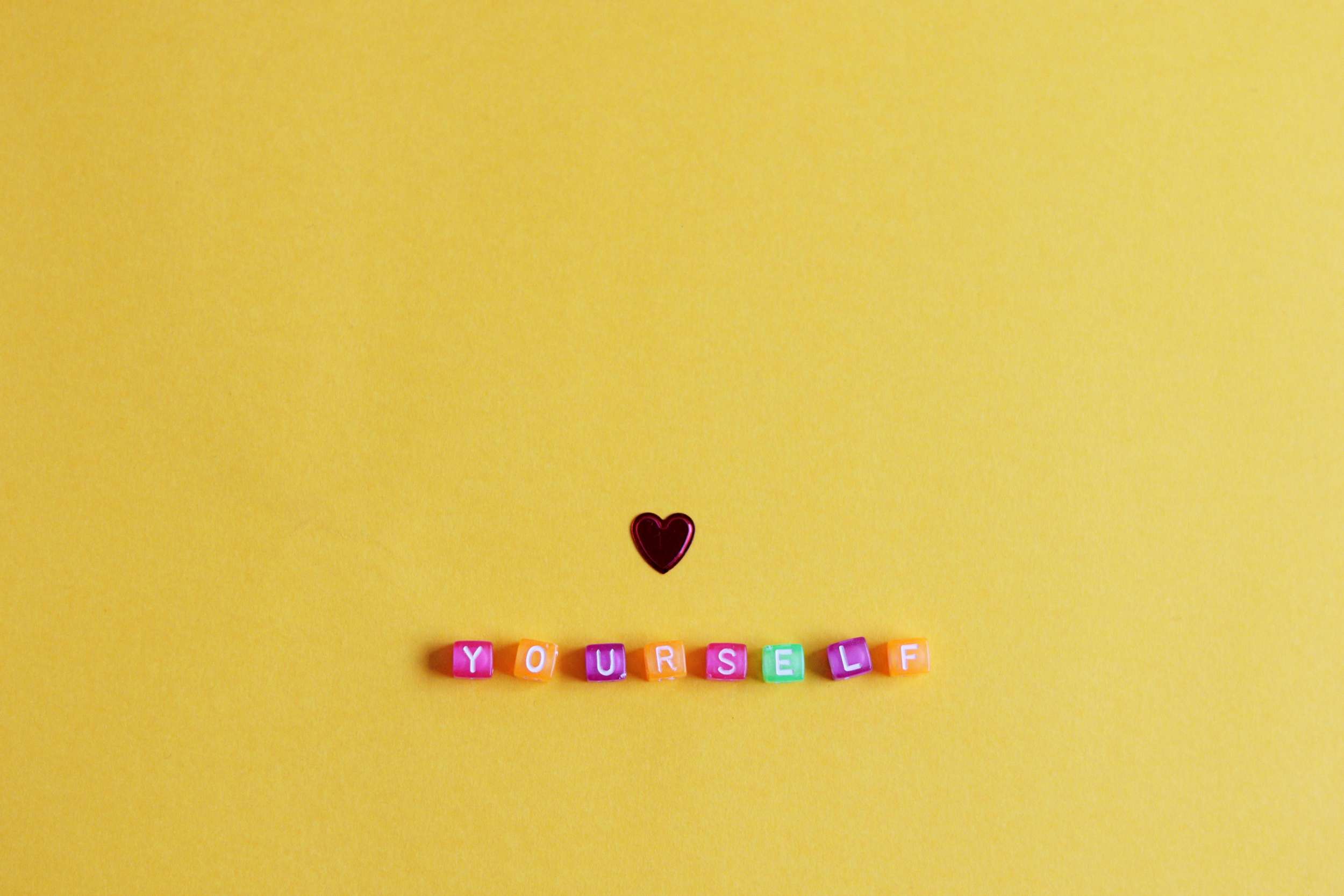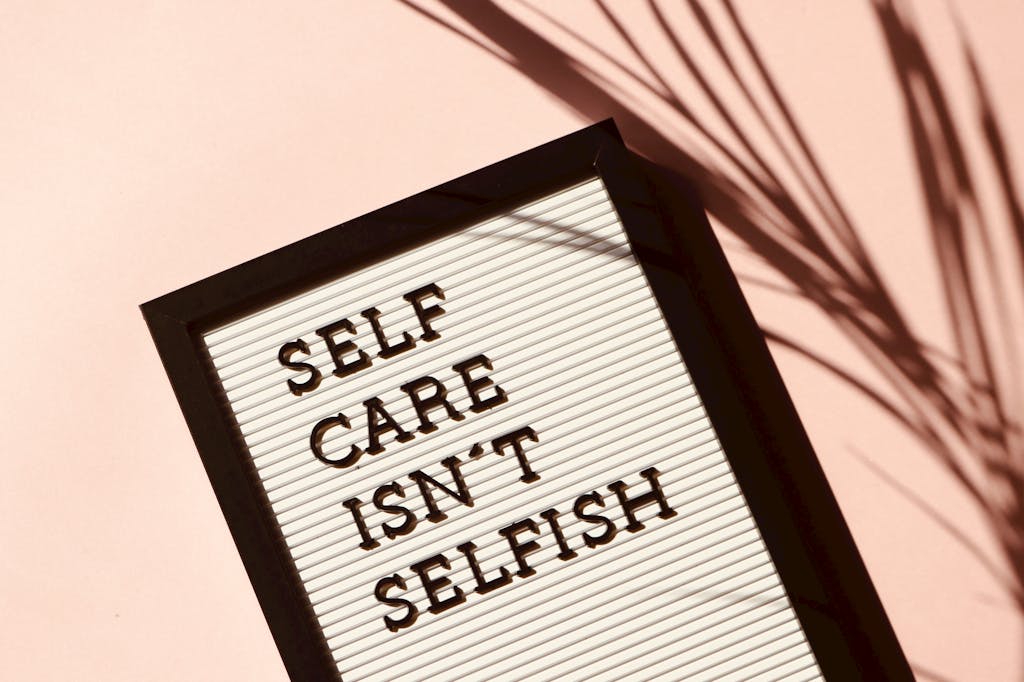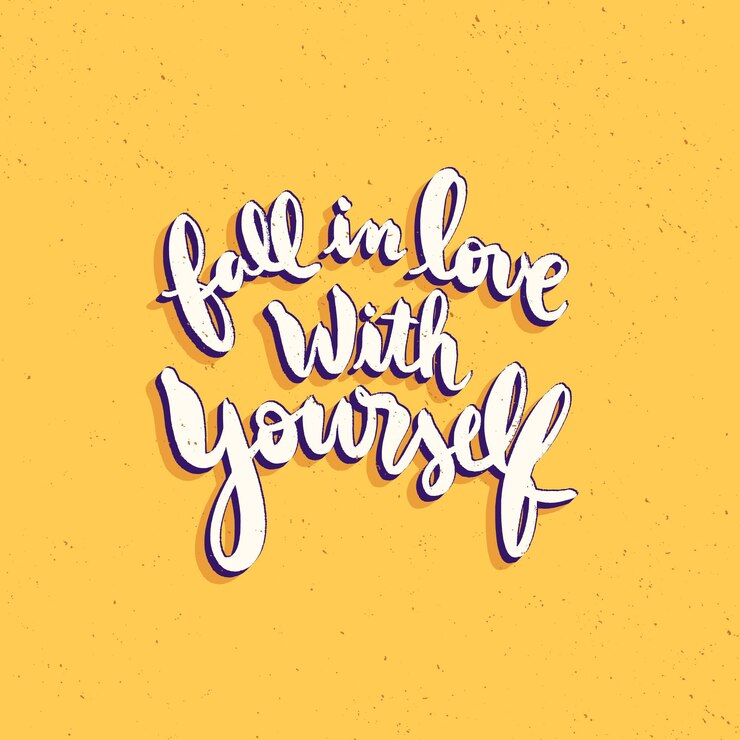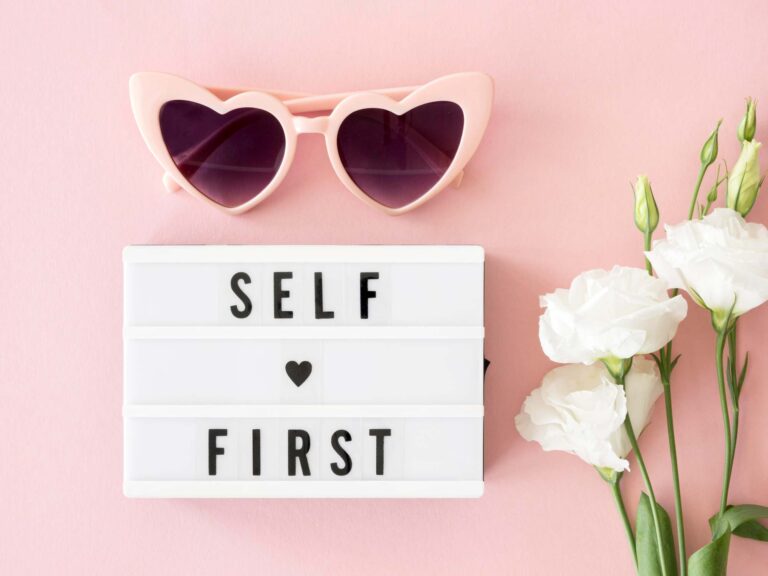Small acts of self-love that make a big difference in your life
Self-love doesn’t require dramatic gestures or life-changing decisions. You don’t need to quit your job, move to Bali, or spend thousands on a retreat to start loving yourself more. You can start with small acts of self-love and see what big change they do.
The truth? The most transformative acts of self-love happen in tiny moments throughout your day. It’s choosing to speak kindly to yourself when you make a mistake. It’s taking five minutes to do something that brings you joy. It’s setting a boundary without guilt.
These small acts of self-love might seem insignificant in the moment, but they add up to something powerful: a healthier, more compassionate relationship with yourself. And here’s what I know after years of helping people transform their lives – loving yourself isn’t selfish. It’s the foundation for everything else.
When you learn to treat yourself with kindness, everything shifts. Your confidence grows. Your relationships improve. You stop seeking validation from others because you’ve learned to validate yourself.
Ready to discover how small changes can create big transformations? Let’s dive into simple, daily practices that will help you fall in love with yourself again.
Why tiny changes create lasting transformation
Most people think self-love requires major life overhauls. But here’s what actually works: Small acts of self-love practiced consistently create more lasting change than sporadic grand gestures.
Big gestures feel good in the moment but fade quickly. A spa day is lovely, but what happens when you’re back to your regular routine on Monday morning? Without daily practices supporting you, those good feelings disappear.
Small, consistent actions literally rewire your brain. Every time you choose kindness toward yourself, you’re creating new neural pathways. These become automatic responses over time, shifting how you naturally think about and treat yourself.
Most importantly, small changes feel achievable. When self-love feels overwhelming, starting with tiny practices gives you a foundation you can actually build on.

Start with gratitude for what you already have
Gratitude is like a reset button for your brain. When you’re stuck in worry, self-doubt, or that endless mental loop of everything that’s wrong, gratitude shifts your focus to what’s actually working in your life.
And here’s the beautiful thing about gratitude – it doesn’t have to be huge or life-changing to be powerful. You don’t need to feel grateful for major milestones. Sometimes it’s appreciating your morning coffee, the fact that your bed was warm last night, or that text from a friend who made you smile.
Daily practice: Start each morning by finding three things you’re grateful for. If you’re thinking “but I don’t have anything to be grateful for,” I promise you do. You have a roof over your head, you ate yesterday, you can read these words. Start there.
Example: “I’m grateful for the support of my friend who checked on me, the sunshine streaming through my window, and this cozy sweater that makes me feel comfortable.”
Journal prompt: What are three things I’m grateful for today, and why do they matter to me?
Level up: Try a “gratitude moment” before bed too. Reflect on the good things that happened during your day, no matter how small. This simple practice will help you sleep better and wake up with a more positive mindset.
Want more ways to practice gratitude? Our article – Best gratitude exercises to boost your mood will give you additional techniques to boost your mood and deepen your appreciation practice.
Why gratitude works: When you actively look for things to appreciate, you train your brain to notice positive experiences instead of only focusing on problems. This single shift can completely change how you experience your daily life.

Replace your inner critic with a supportive friend
Let’s be honest – you’re probably way harder on yourself than you’d ever be on anyone else. That voice in your head that says you’re not good enough, smart enough, or doing enough? It’s time to have a conversation with that voice.
Here’s a question that changed everything for me: Would you talk to your best friend the way you talk to yourself? If the answer is no (and it probably is), then why do you think it’s okay to speak to yourself that way?
Your inner dialogue shapes your entire reality. When you criticize yourself constantly, you’re literally training your brain to focus on what’s wrong with you. But when you speak to yourself with the same kindness you’d show a friend, you start building confidence from the inside out.
Common inner critic patterns to recognize:
- All-or-nothing thinking: “I always mess up” or “I never do anything right.”
- Catastrophizing: Making small mistakes feel like major disasters.
- Mind reading: Assuming you know what others think about you (usually negative).
- Comparison trap: Measuring your behind-the-scenes against others’ highlight reels.
- Selective focus: Only noticing what went wrong while ignoring what went right.
Daily practice: When you catch yourself in self-criticism, pause and ask, “How would I respond if my best friend told me this?” Then actually give yourself that response.
Example: Instead of “I can’t believe I made that mistake, I’m so stupid,” try “Everyone makes mistakes. I’m human, and this is how I learn and grow.”
Journal prompt: What’s one harsh thing I said to myself today, and how can I reframe it with kindness?
Exercise: Write down the top 5 things your inner critic says to you regularly. Then rewrite each one as if you’re comforting a dear friend. Keep this list handy for when your critic gets loud.
The reframe practice: Create a daily habit of catching one critical thought and immediately reframing it with compassion. This single practice can transform your entire relationship with yourself over time.
Give yourself genuine compliments daily
You probably compliment other people all the time – telling them they look great, acknowledging their efforts, celebrating their wins. But when was the last time you gave yourself a genuine compliment?
Complimenting yourself isn’t about being conceited or “full of yourself.” It’s recognizing your own worth and celebrating the good qualities you bring to the world. When you acknowledge your strengths regularly, you start to see yourself more clearly instead of only focusing on what you think is wrong.
Types of meaningful self-compliments:
- Effort-based: “I’m proud of how I stayed calm during that stressful meeting.”
- Character-based: “I showed real kindness when I could have been harsh.”
- Growth-based: “I’ve come so far in managing my anxiety.”
- Skill-based: “I handled that difficult conversation with grace.”
- Appearance-based: “This color looks amazing on me” or “I love how confident I look today.”
Daily practice: Give yourself at least one genuine compliment each day. It could be about something you accomplished, how you handled a situation, a quality you appreciate about yourself, or simply how you look today.
Example: “I’m proud of how creative I was with dinner tonight” or “I love how I made that person smile today” or “I appreciate how I prioritized my needs without feeling guilty.”
Journal prompt: What’s one thing I genuinely appreciate about myself today? How can I celebrate this quality more often?
Start small: If complimenting yourself feels weird at first, begin with acknowledging your efforts: “I showed up today and did my best” or “I chose to be kind when I could have been harsh.”
The mirror practice: Once a week, look yourself in the eyes in the mirror and give yourself a genuine compliment. This builds the practice of seeing yourself with appreciation rather than criticism.

Make time for what brings you joy
Self-love means honoring the fact that your happiness matters. It means making time for the things that light you up inside, even if it’s just for ten minutes.
This isn’t about having hours of free time or expensive hobbies. It’s about those small moments when you get to do something purely because it makes you happy. Reading a few pages of a book you love. Dancing to your favorite song in your kitchen. Sitting outside with your coffee and actually tasting it instead of rushing.
When you prioritize activities that bring you joy, you’re sending yourself a powerful message: I matter. My happiness is important. I deserve to feel good.
Daily practice: Set aside at least 10 minutes for something you genuinely enjoy. Think of it as your daily gift to yourself – no guilt, no rushing, just pure enjoyment.
Example: Take time to enjoy your morning coffee, practice a hobby, spend time with a pet, listen to music that makes you feel alive, or call someone who always makes you laugh.
Journal prompt: What’s one small thing that always makes me smile, and how can I make space for it today?
Exercise: Make a “joy list” of 20 simple things you love doing. When you’re feeling disconnected from yourself, pick one from the list and do it immediately.
The 5-minute rule: If you think you don’t have time for joy, start with just 5 minutes. Put on a song you love and dance. Step outside and feel the sun on your face. Read one page of something that interests you. Five minutes of genuine joy is better than none.
Weekly joy planning: Each Sunday, look at your week ahead and schedule in three small joy moments. Treat them as non-negotiable appointments with yourself.
Practice simple acts of self-care that matter
Self-care isn’t bubble baths and face masks (though those can be nice too). Real self-care is taking care of your basic needs because you recognize that you’re worth caring for.
It’s drinking enough water because your body deserves to be hydrated. It’s taking a five-minute stretch break because your body has been carrying you all day. It’s going to bed at a reasonable time because you deserve rest.
Don’t overcomplicate this. The point isn’t to create another overwhelming routine. The point is to show yourself, through small actions, that you matter.
Daily self-care essentials:
- Hydration: Keep water nearby and actually drink it throughout the day.
- Movement: Take stretch breaks, walk around the block, or do gentle yoga.
- Nutrition: Eat meals that nourish you instead of just grabbing whatever’s convenient.
- Sleep hygiene: Create a calming bedtime routine that helps you rest well.
- Skin care: Take care of your skin not because you need to look perfect, but because you deserve to feel good in your body.
Daily practice: Choose one simple self-care act each day – staying hydrated, taking a short walk, doing gentle stretches, or having a proper skincare routine before bed.
Example: End your day with a skincare routine that makes you feel cared for and appreciated. Not because you need to look perfect, but because you deserve to feel good in your own skin.
Journal prompt: How does taking care of my body help me feel more connected to myself?
Level up: Add tiny self-care moments throughout your day – set a reminder to stretch, light a candle to create a calming atmosphere, or step outside for three deep breaths.
The body appreciation practice: While doing self-care, thank your body for what it does for you. “Thank you, hands, for all the work you do” or “Thank you, legs, for carrying me through the day.”

Set boundaries that honor your needs
Boundaries aren’t mean or selfish – they’re essential for self-respect. They protect your energy and create space for you to be yourself without feeling drained or compromised.
Setting boundaries means saying no when something doesn’t serve you, even in small ways. It means not immediately saying yes to every request. It means protecting your time and energy because they’re valuable.
And here’s the thing about boundaries – they’re actually loving. When you say no to something that drains you, you’re saying yes to what matters most.
Types of boundaries to practice:
- Time boundaries: “I’m not available for calls after 8 PM.”
- Energy boundaries: “I need to skip tonight’s event to recharge.”
- Emotional boundaries: “I’m not comfortable discussing that topic.”
- Work boundaries: “I don’t check emails on weekends.”
- Social boundaries: “I need some quiet time instead of going out.”
Daily practice: Practice saying “no” when necessary, even with small things. Whether it’s skipping a social event when you need rest or not answering work emails after hours – honor your own needs.
Example: “I’d love to help, but I’m not available tonight. Can we find another time?” or “I need some quiet time this evening to recharge.”
Journal prompt: Where in my life do I need to set stronger boundaries to protect my well-being?
Exercise: Identify one area where you struggle with boundaries. Write down one small boundary you can set this week, then practice enforcing it with kindness but firmness.
The boundary scripts: Prepare gentle but firm responses for common situations:
- “I’m not able to take that on right now.”
- “That doesn’t work for me, but thanks for thinking of me.”
- “I need to check my calendar and get back to you.”
Celebrate small wins and progress
You’re probably amazing at celebrating other people’s accomplishments but terrible at acknowledging your own. Every time you make progress – no matter how small – you’re moving in the right direction. That deserves recognition.
Working on yourself is a process, and each step you take matters. Did you drink enough water today? That’s worth celebrating. Did you speak kindly to yourself when you made a mistake? That’s huge progress. Did you take five minutes to do something you enjoy? That’s an act of self-love.
Daily practice: At the end of each day, acknowledge one thing you accomplished, no matter how small. Celebrate the effort you put in, not just the outcome.
Example: “I’m proud of myself for taking that walk even though I didn’t feel like it” or “I handled that difficult conversation with grace today.”
Journal prompt: What are three small things I did today that make me proud?
Exercise: Keep a “wins journal” where you note daily accomplishments. Review it regularly to remind yourself of your ongoing growth and progress.
The progress celebration practice: Once a week, review your wins journal and celebrate how far you’ve come. Notice patterns of growth and acknowledge your consistency in small changes.
Types of wins to celebrate:
- Growth wins: You handled something better than you would have before.
- Effort wins: You tried something new or difficult.
- Kindness wins: You treated yourself or others with compassion.
- Boundary wins: You said no when you needed to.
- Joy wins: You made time for something that made you happy.

Small acts of self-love – making consistency your goal, not perfection
Building self-love isn’t about doing everything perfectly – it’s about showing up for yourself consistently, day after day. Small acts of self-love work because they’re sustainable and build on each other over time.
You don’t need to master all these practices at once. In fact, trying to do everything perfectly will likely make you feel overwhelmed and defeated. Start with one or two approaches that resonate with you. Practice them until they feel natural, then add more if you want to.
Tips for staying consistent:
- Start ridiculously small: Begin with one action and focus on it until it feels automatic.
- Set gentle reminders: Use phone alerts or sticky notes to keep self-love on your mind.
- Track your progress: Use a simple checklist or journal to see your consistency building.
- Forgive yourself: If you miss a day, be gentle. Self-love includes being kind about your imperfections.
- Focus on the feeling: Notice how these practices make you feel, not just whether you “did them right.”
The 1% better rule: Aim to be just 1% more loving toward yourself each day. These tiny improvements compound over time into significant transformation. Small moments create massive change over time. These 5-minute rituals will show you how tiny daily practices can transform your entire relationship with yourself.
Remember: Self-love is about treating yourself with kindness, not adding more pressure to your life. If any practice starts to feel like just another thing to perfect, step back and return to the intention of caring for yourself.

Common obstacles to practicing self-love (and how to overcome them)
Even when you understand the importance of self-love, actually practicing it can feel challenging. Let’s address the most common obstacles:
“I don’t have time for self-care.” Most of these practices take 2-5 minutes. You have time to scroll social media, but not to appreciate yourself? Start with one 30-second practice – giving yourself a compliment in the mirror each morning.
“It feels selfish to focus on myself.” Taking care of yourself isn’t selfish – it’s necessary. When you’re running on empty, you can’t show up fully for others. Self-love gives you the energy and emotional capacity to be genuinely helpful and present.
“I don’t know how to be kind to myself.” Start by treating yourself the way you’d treat a good friend. Ask yourself: “What would I say to someone I care about in this situation?” Then say that to yourself. Need more guidance on self-compassion? These self-compassion exercises will teach you specific techniques for treating yourself with the kindness you deserve.
“It feels fake or forced.” This is normal at first. Your brain is used to criticism, so kindness feels foreign. Keep practicing anyway. Feelings follow actions – the more you practice self-compassion, the more natural it becomes.
“I don’t deserve to feel good about myself.” This belief often comes from past experiences or messages you received growing up. You deserve love and kindness simply because you exist. Start small and let your experiences prove this to you over time.
“I’m afraid I’ll become complacent.” Self-love doesn’t make you lazy or complacent – it gives you the emotional foundation to take better care of yourself and pursue your goals from a place of worth rather than desperation.
Creating your personal self-love routine
Now that you understand various approaches to self-love, it’s time to create a routine that works for your specific life and needs.
Morning self-love (5-10 minutes):
- Three things you’re grateful for,
- One genuine compliment to yourself,
- Set an intention for treating yourself kindly today.
Throughout the day:
- Notice one moment of joy and fully experience it,
- Catch one critical thought and reframe it with compassion,
- Take care of one basic need (water, movement, rest).
Evening self-love (5-10 minutes):
- Acknowledge one thing you accomplished today,
- Appreciate one way your body served you,
- Set a boundary around your rest time.
Weekly self-love practices:
- Review your wins journal and celebrate progress,
- Do one activity purely for joy,
- Practice saying no to something that doesn’t serve you.
The customization principle: Adapt these practices to fit your life. If mornings are rushed, do your gratitude practice during your commute. If evenings are hectic, acknowledge your wins while brushing your teeth. The key is consistency, not perfection.
Looking for more daily self-love strategies? These 5 simple habits will help you build a complete routine that feels natural and sustainable.

Transform these practices into lasting change
The practices we’ve explored are powerful starting points, but creating deep, lasting transformation requires the right guidance and structure. That’s exactly why I created the Self-love bundle.
Each workbook takes these concepts and transforms them into a complete 30-day journey:
- Self-love rituals – 30 days to self-love habits with small actions that create massive impact and help you stop treating yourself like an afterthought.
- Self-compassion – develop unshakeable self-compassion habits and learn to treat yourself with the kindness you deserve, especially during difficult times.
- Self-love foundations – transform how you see yourself and build genuine self-worth that doesn’t depend on external validation or perfection.
- Letting go – master the art of releasing what no longer serves you and make space for peace, freedom, and new beginnings.
These aren’t just more information – they’re step-by-step roadmaps with daily exercises, journal prompts, and practical tools that build on everything we’ve discussed here.
Your self-love journey starts with the next small choice
Building self-love happens in the small moments and choices you make every day. It’s expressing gratitude when you wake up. It’s speaking to yourself like someone you actually care about. It’s taking five minutes to do something that brings you joy.
These might seem like tiny acts, but their impact is powerful. When you consistently choose kindness toward yourself, everything begins to shift. You stop seeking validation from others because you’ve learned to validate yourself. You handle challenges with more grace because you’re not fighting yourself while fighting the problem.
Most importantly, you start to genuinely like the person you spend the most time with – yourself.
It’s easy to get caught up in taking care of everyone else while forgetting the one person who needs your love most: you. But imagine what your life could feel like if you started showing yourself the same kindness, care, and appreciation you give to others.
The truth is, small acts of self-love practiced consistently create the biggest transformations. It’s choosing to breathe instead of spiral. It’s saying something encouraging instead of critical. It’s celebrating small wins instead of dismissing them.
Ready to make self-love a natural part of your everyday life? The Self-Love Workbook Bundle gives you everything you need to transform these small acts into lasting change.
Don’t wait for the “perfect moment” to start loving yourself more. That moment is right now, with the next small choice you make.
Explore the Self-love bundle >>>
Your relationship with yourself is the longest relationship you’ll ever have. Isn’t it time you made it a loving one?







